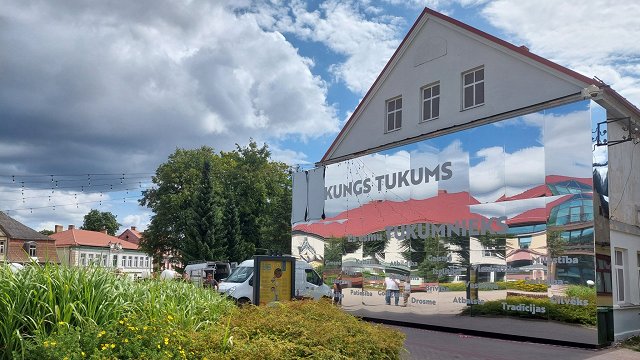According to the Ministry of Culture, the results of the study confirm the forecast expressed by the Ministry at the beginning of the pandemic – the security measures for restricting the spread of Covid-19 have left a significant footprint on culture.
"The 2022 study was carried out at a time when cultural institutions and society as a whole are still in transition between the daily realities of the pandemic and the new habits in the post-pandemic phase. Consequently, the results of this study are likely to continue to reflect the effects of the pandemic on cultural consumption, rather than the new habits.
"Since the duration of the study covers the period from October 2021 to October 2022, it also partly includes a period of different restrictions. This allows it to be assumed that these indicators reflect the maximum negative impact of the pandemic achieved on cultural activity. On the other hand, new habits and trends in cultural activity will be fully visible in the next measurements, when the study will include at least one full year without the constraints imposed by the pandemic," said Anda Laķe, head of the Latvian Academy of Culture's Institute of Culture and Arts.
Although visits to events and activities have been significantly more available in the last year than in the previous two years, the proportion of people who have not attended any cultural events or activities during the year has increased significantly in 2022 – it was less than 10% before the pandemic, 20% in the early part of the pandemic in 2020, and in 2022, up to 34%. Therefore, every third resident of Latvia aged 15 to 75 has not attended any cultural events or activity in the last year.
Digital culture
The survey shows that cultural consumption on the Internet has increased strongly over the past three years, with a significant increase in consumption in all categories included in the questionnaire (and an increase was also observed in the 2020 measurements). The most common digital cultural activities of the population are: viewing foreign films online (55%), listening to music online (54%), and watching Latvian films online (45%). About one-third of them watch or listen to concert broadcasts on the Internet, read cultural articles, watch cultural broadcasts on the Internet (but not on television), and follow the social media pages of cultural institutions.
The analysis of data on specific categories of cultural consumption shows that all population activity has fallen when compared to pre-pandemic and pandemic times. Over the last year, most of the population has been involved in cultural activities such as visiting cultural and historical sites (29% of the population have done so), visiting cultural events at the local cultural center (26%), attending popular music concerts (25%), visiting museums (23%), visiting libraries (21%). The other activities included in the questionnaire involved not more than a fifth of the population in each.
Over the last four years (since 2018), the proportion of people watching Latvian films has jumped the most (16% to 45%), followed by reading articles and blogs on culture (8% to 33%), listening to music online (32% to 54%), watching foreign films (34% to 55%).
Overall, 38% of the population has paid for digital cultural content over the past year. 23% have paid for popular music concerts, 19% for cinema, 14% for theatrical shows, 11% for seminars and lectures, 6% for classical or temporal music concerts.
Young people are more active in cultural consumption
Over the last year, 8% of Latvia's population have been involved in amateur art (choir, folk dance collective, amateur theater, etc.), 40% participate in various other cultural activities (photography, films, crafts, painting, playing musical instruments, etc.), while 47% perform other public activities (donating money to charity, sport, education, etc.). 10% of the population participated in amateur art in 2018, with a drop of 2% observed lately. In all categories of participation, with the exception of amateur art, population activity has increased in 2022 compared to 2020.
When assessing the cultural consumption of young people in the context of the overall population, it is concluded that young people are more active in cultural consumption. If, in general, 64% of Latvia's population have visited cultural events and activities in their city or parish, while the proportion of young people is 78%. Young people are also more active in visiting cultural events outside their place of residence. 44% of young people visit events in their region (while only 30% of the general population), 41% of young people (and 30% of all residents) visit events in another region, while 15% of young people have visited cultural events outside Latvia (and 10% of all residents). Comparing data with the 2020 figures shows that young people have particularly increased visits to other regions as well as their region this year, while visits to the Baltic States have fallen significantly (in 2020, 24% of young people visited events in neighboring countries, but this year only 9%). Young people are also more active in personal participation than Latvian residents in general.
Cultural consumption and participation impact study, which reflects population activity in attendance and personal participation in culture, carried out by the Latvian Academy of Culture and the research center SKDS, implemented a survey of 1040 residents of Latvia, as well as a survey of cultural establishments, NGOs and other organizations.
Cultural consumption studies have been carried out since 2016 every two years.

























